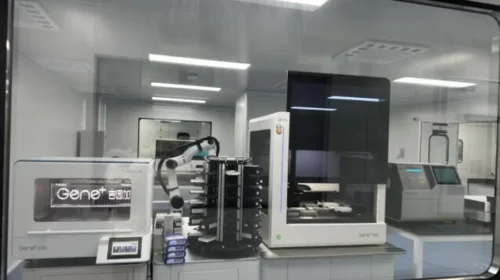FAST NEWS: Legend Biotech’s revenue soars, but fails to turnaround losses

The latest: Legend Biotech Corp. (LEGN.US) announced Tuesday its second quarter revenue jumped 513% year-on-year to $73.33 million, mainly due to higher revenue from the sale of Carvykti, a product in collaboration with Janssen Biotech.
Looking up: As of Jun. 30, Legend held $1.5 billion in cash and cash equivalents, time deposits, and short-term investments. In addition to the financing it completed in recent months, it expects its cash levels to be sufficient through 2025.
Take Note: The company recorded a net loss of $199 million in the second quarter, slightly higher than the $193 million recorded in the same period last year, mainly due to a 60.5% jump in fair value loss on warrant liabilities to $106 million, and a 39% increase in R&D expenses to $95.79 million.
Digging Deeper: Founded in 2014, Legend is a subsidiary of Genscript Biotech (1548.HK) engaged in cellular therapeutics business, which was listed on Nasdaq in 2020. The company’s core product, Carvykti, a cancer drug developed, manufactured and commercialized globally in partnership with Johnson & Johnson’s (JNJ.US) Janssen Biotech, is helping its parent company meet the harvest period with rising turnover as it receives approval from the U.S. Food and Drug Administration (FDA) to market the product.
Market Reaction: Legend shares dropped 4.8% to $66.95 in Tuesday trade in New York. The stock now trades near the upper end of its 52-week range.
Translation by A. Au
Have a great investment idea but don’t know how to spread the word? We can help! Contact us for more details.
To subscribe to Bamboo Works weekly free newsletter, click here





